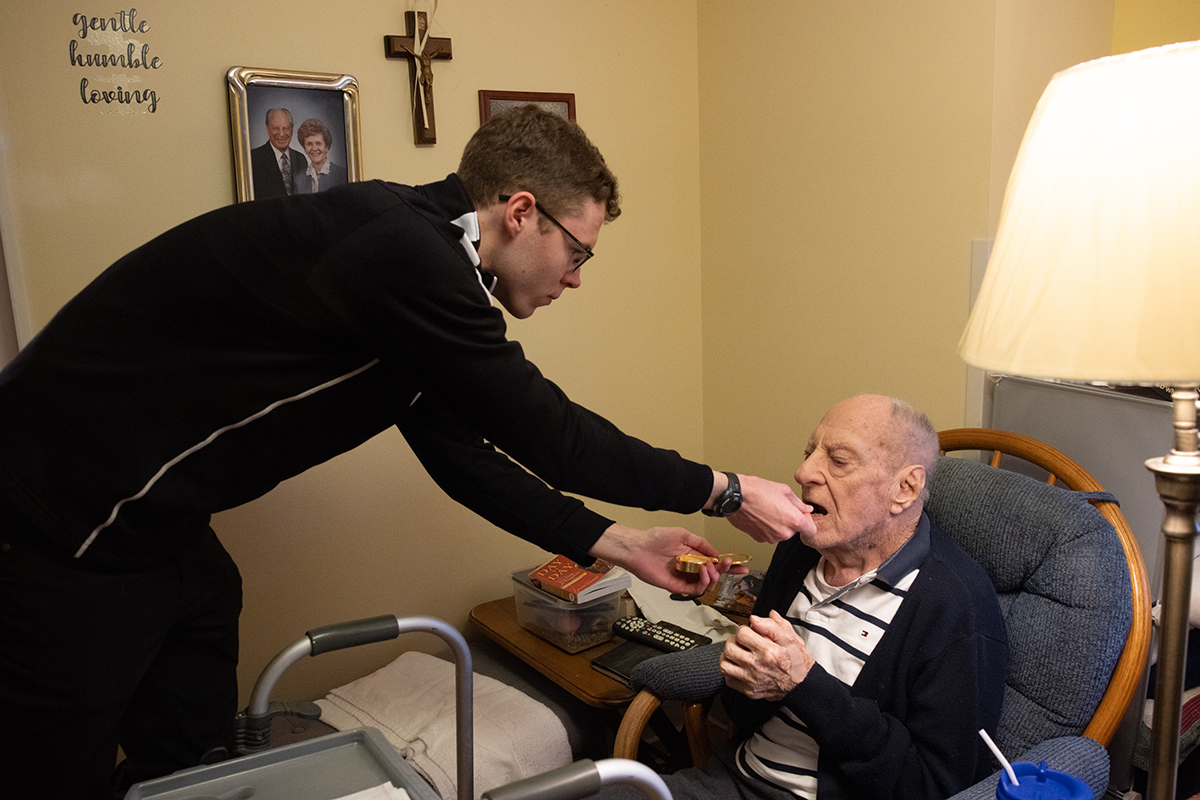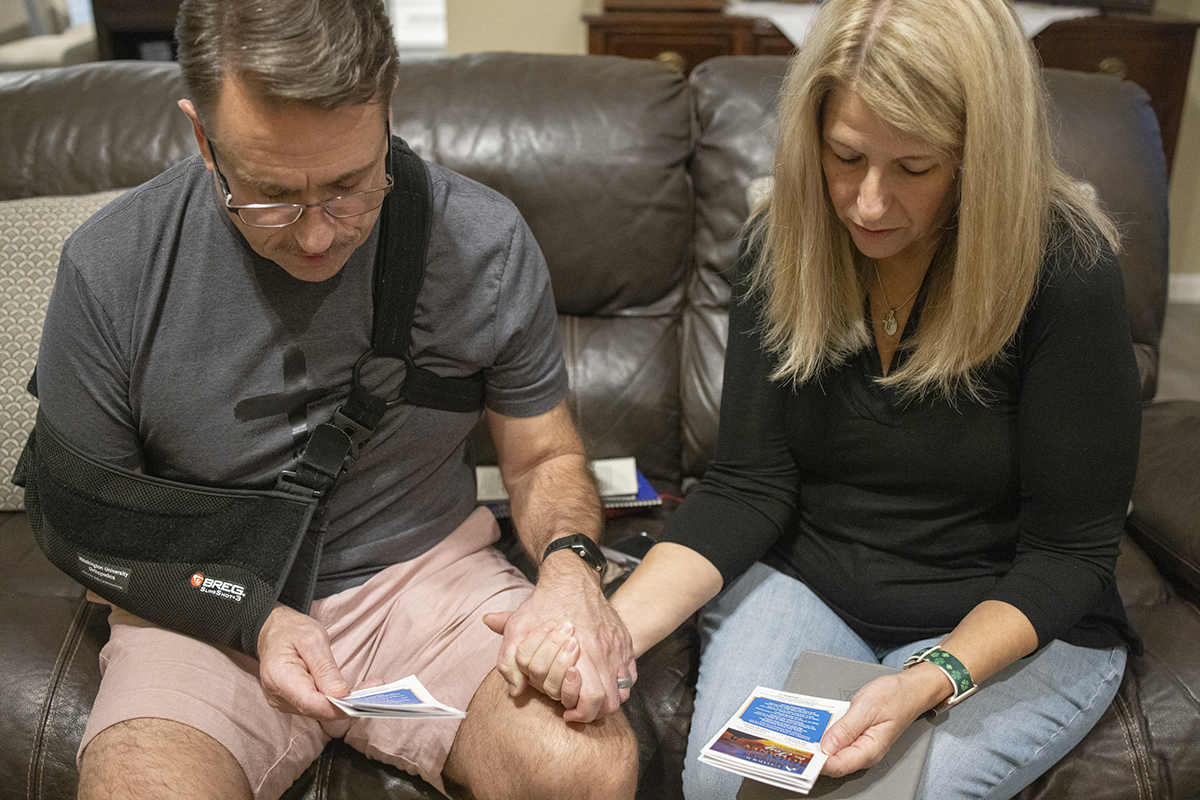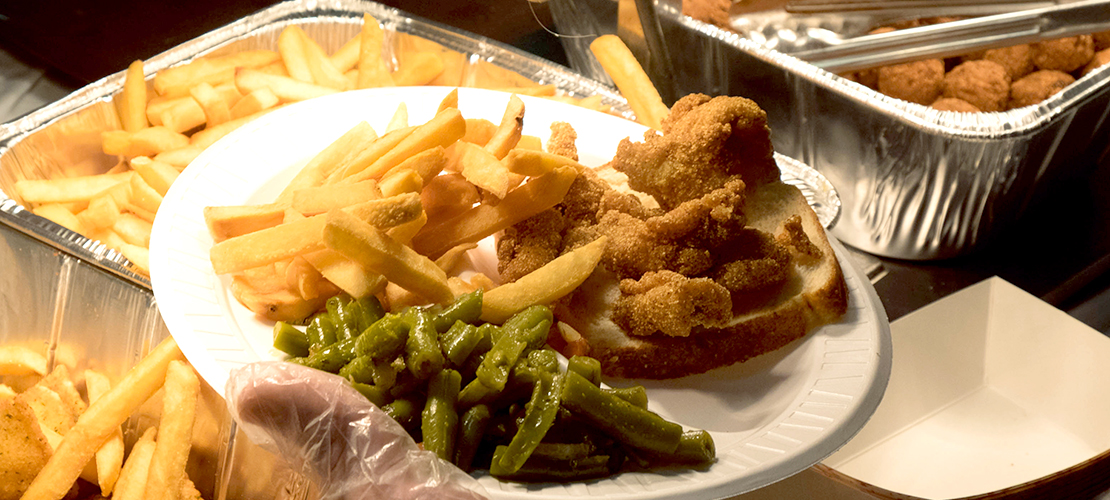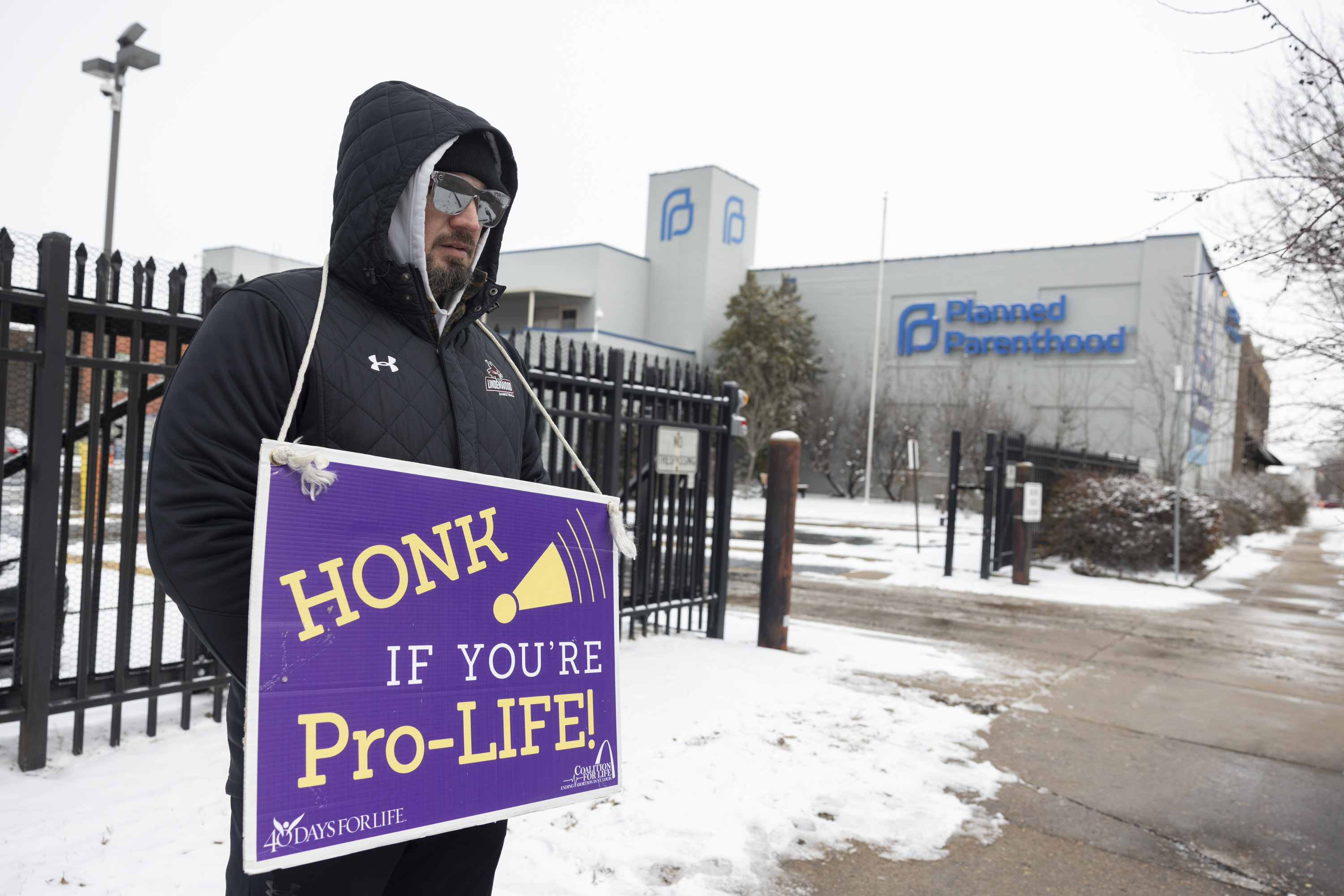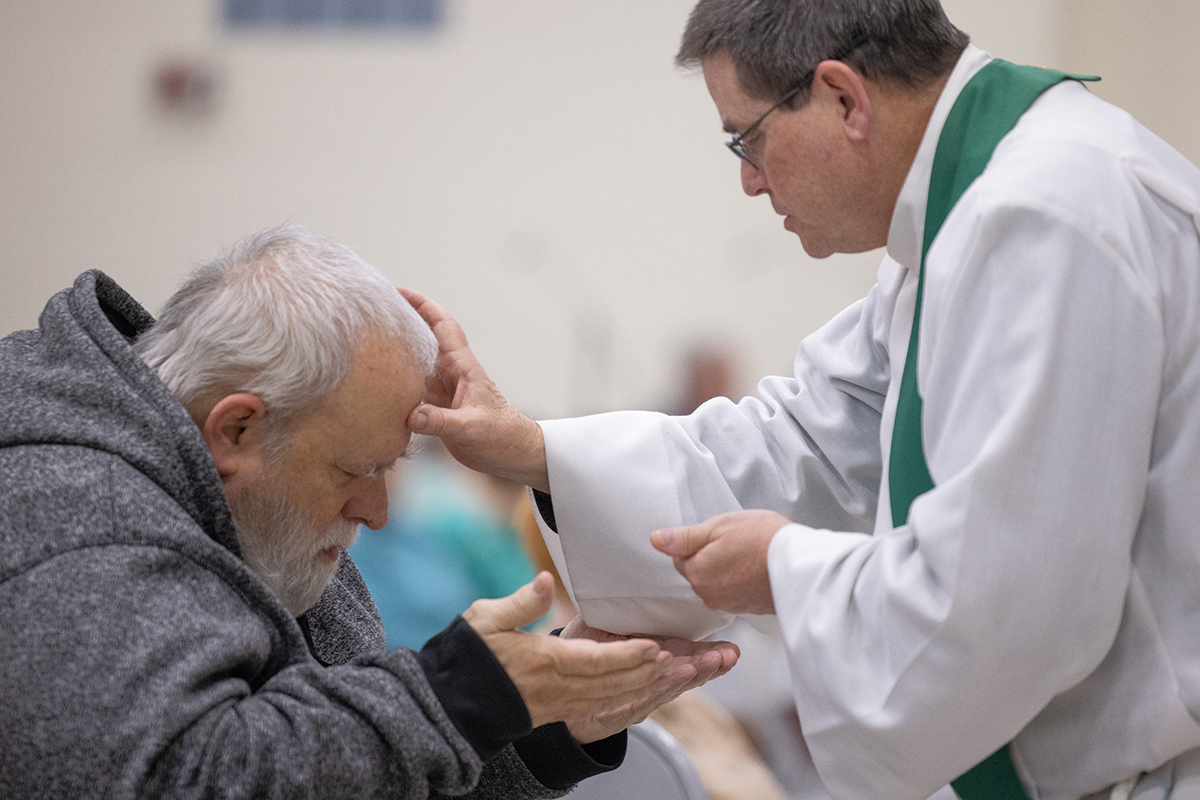Bishops’ listening session on racism shines light on ‘naked racism’ in the Church
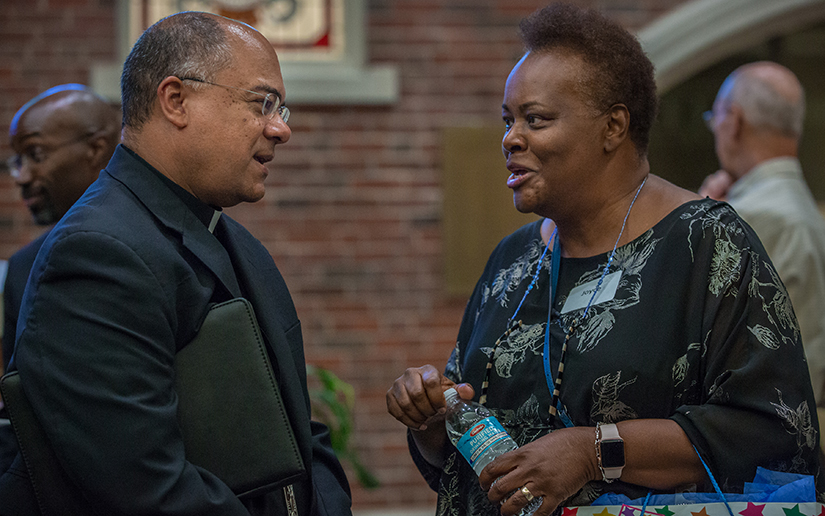
After St. Louis session, bishops will host other listening sessions in U.S.
Barbara Jackson graduated from college in the 1990s and got a teaching job in a good school district. She purchased her first car and moved into an apartment. Fast forward several years — she had moved closer to her place of employment and further away from her home place of worship. Jackson set out to visit the Catholic church in her neighborhood for Saturday evening vigil Mass.
“I entered reverently, touched the holy water to my forehead and made the sign of the cross,” she recalled. “In my prayer, I asked for a favor in discerning in choosing this one as my new place of worship.” When it came time for Communion, she got in line and moved toward the altar.
When Jackson reached the priest, he curtly said to her: “What do you want?”
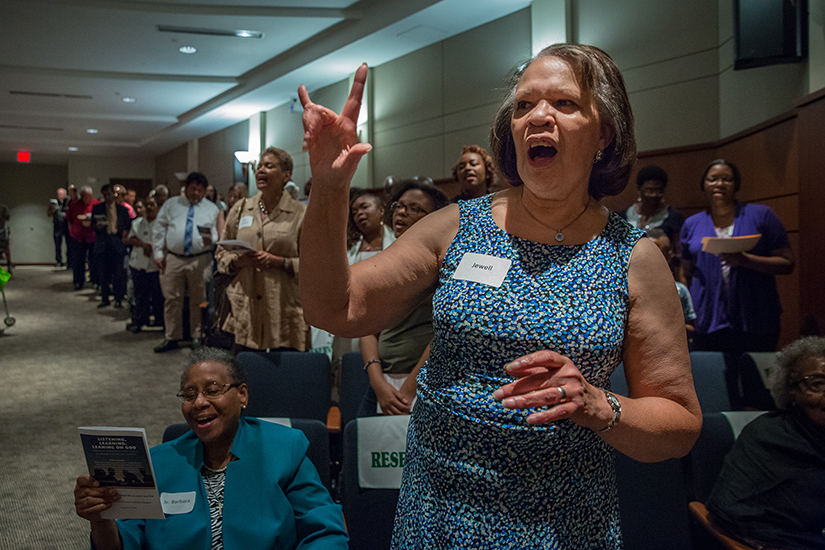
Thankfully, she had the presence of mind to calmly reply: “The Body of Christ.”
Jackson, who now attends St. Matthew the Apostle Parish in north St. Louis, was one of more than two dozen Catholics who shared their personal experiences of racism within the Catholic Church as part of a listening session Aug. 17 at Saint Louis University. The Archdiocese of St. Louis is the first diocese to host a listening session in conjunction with the United States Conference of Catholic Bishops’ ad hoc Committee Against Racism. The bishops are hosting the sessions with dioceses to hear firsthand from Catholics who have been harmed by acts of racism and to pray for healing, forgiveness and reconciliation. Several other dioceses have scheduled listening sessions in the coming months.
Their comments, along with written comments from the audience, were collected and presented to the committee for discussion and further action. The comments also will be integrated into the application of the bishops’ Pastoral Letter Against Racism, which is anticipated to be voted on at the bishops’ fall meeting in November.
Attendees at the session Aug. 17 included Archbishop Robert J. Carlson, Auxiliary Bishop Mark S. Rivituso, Bishop emeritus Robert J. Hermann from St. Louis; Bishop Shelton Fabre, chairman of the Committee Against Racism and leader of the Diocese of Houma-Thibodaux, La.; Bishop Martin Holley of the Diocese of Memphis and member of the Committee Against Racism; and Bishop emeritus John Gaydos of the Diocese of Jefferson City, Mo.
Archbishop Carlson described the listening session as an opportunity “to open up what has been painful for so many of our members over the years, and we can begin to deal with the truth that exists.”
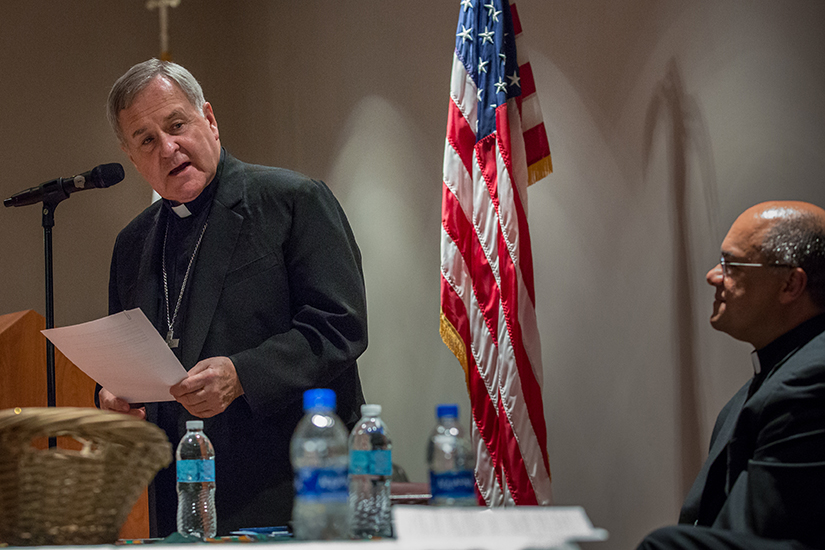
Bishop Fabre this summer became chairman of the Committee Against Racism, after Bishop George Murry of Youngstown, Ohio, resigned from the role following a diagnosis of a form of acute leukemia. Noting the one-year anniversary of the deadly “Unite the Right” rally in Charlottesville, Va., and racial tensions in St. Louis, Baltimore, Chicago and other U.S. cities, Bishop Fabre said the bishops have “witnessed the country’s racial tension growing to a fever pitch.” He also noted that what happened in Ferguson four years ago, “is something that is very much still in the hearts and minds of its faithful and its citizens.”
The bishops’ forthcoming pastoral letter, he added, “is a necessary step toward bringing this issue into the light of the consciousness of the laity and will, God willing, serve as a unified statement to measure the works and efforts to end racism in the Church in America and in our communities.”
Speakers shared their stories of being shunned at church, being called the N-word at school, experiencing racially motivated neglect of a parish, or being questioned whether they were qualified to teach. The stories ranged from recent encounters of high schoolers to older adults who had witnessed recurring instances of racism at different times in their lives.
Jason Purnell, associate professor at the Brown School at Washington University and director of Health Equity Works (originally For the Sake of All), recounted being blessed by the Church in his life and education. But many of those same institutions were the first places where he encountered “naked racism,” he said.
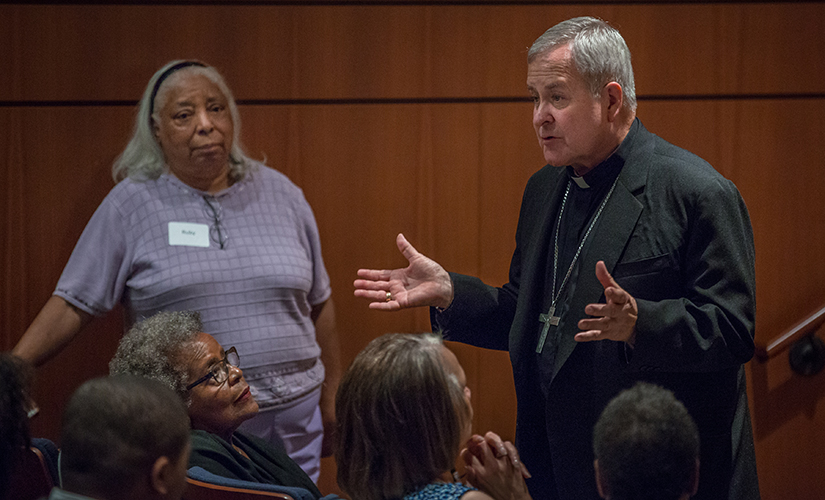
Mentioning several instances that occurred Catholic grade and high school, “what ties all of these experiences together is a theme of silence. I didn’t feel that I could talk to anyone, and no one addressed it.” He commended Archbishop Carlson for encouraging priests to preach on the topic of racism during Lent, and a recent gathering of priests who talked about the subject of racism, but much work remains to be done.
“If I have been harmed by anything, it has been the silence of the Church in the United States,” Purnell said of his past experiences, adding that the Church also has been largely silent in its actions regarding the clergy sex abuse scandal.
And yet faith teaches us that there is always hope, he said. “The Church can step into the gaps that separate us by race by calling on what undergirds us. … That may give us the strength required to face the ugly truths of the Church’s past and forge a new future out loud, in the light for the world to see.”
Healing Mass
Archbishop Robert Carlson will celebrate a healing Mass at 7 p.m. Wednesday, Sept. 19, at the Cathedral Basilica of Saint Louis, Lindell Boulevard and Newstead Avenue in the Central West End. The Mass will seek healing for hurt caused by the Church through the sin of racism.
Resources
The United States Conference of Catholic Bishops’ website includes information on the ad hoc Committee Against Racism, including statements and other communication from the Church and bishops, prayers and liturgy resources, teaching resources and more: bit.ly/2bRijUK
The Peace and Justice Commission of the Archdiocese of St. Louis: www.archstl.org/ peace-and-justice-commission
Barbara Jackson graduated from college in the 1990s and got a teaching job in a good school district. She purchased her first car and moved into an apartment. Fast forward … Bishops’ listening session on racism shines light on ‘naked racism’ in the Church
Subscribe to Read All St. Louis Review Stories
All readers receive 5 stories to read free per month. After that, readers will need to be logged in.
If you are currently receive the St. Louis Review at your home or office, please send your name and address (and subscriber id if you know it) to subscriptions@stlouisreview.com to get your login information.
If you are not currently a subscriber to the St. Louis Review, please contact subscriptions@stlouisreview.com for information on how to subscribe.

